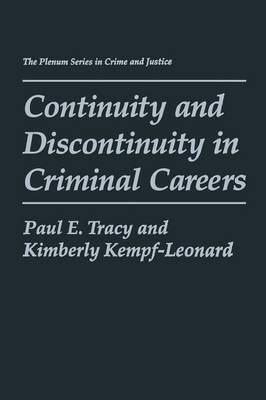It takes courage to do research on crime and delinquency. Such research is typically conducted in an atmosphere of concern about the problem it addresses and is typically justified as an attempt to discover new facts or to evaluate innovative programs or policies. When, as must often be the case, no new facts are forthcoming or innovative programs turn out not to work, hopes are dashed and time and money are felt to have been wasted. Because they take more time, longitudinal studies require even greater amounts of courage. If the potential for discovery is enhanced, so is the risk of wasted effort. Long-term longitudinal studies are thought to be especially risky for other reasons as well. Theories, issues, and sta tistical methods in vogue at the time they were planned may not be in vogue when they are finally executed. Perhaps worse, according to some perspectives, the structure of causal factors may shift during the execu tion of a longitudinal project such that in the end its findings apply to a reality that no longer exists. These fears and expectations assume an ever-changing world and a corresponding conception of research as a more or less disciplined search for news. Such ideas belittle the contributions of past research and leave us vulnerable to theories, programs, policies, and research agendas that may have only tenuous connections to research of any kind.
- ISBN13 9781475798463
- Publish Date 5 May 2013 (first published 31 October 1996)
- Publish Status Active
- Publish Country US
- Imprint Springer-Verlag New York Inc.
- Edition Softcover reprint of the original 1st ed. 1996
- Format Paperback
- Pages 264
- Language English
